Have you ever wondered why so many people regret their land purchases in Nigeria?
It’s not always because the land itself was bad. More often, it’s because buyers failed to ask the right questions before buying land.
In a country where land scams are common, and where government policies can change the fate of an entire community overnight, being informed is your strongest protection.
The Nigerian real estate market is booming. From Lagos to Abuja, Port Harcourt, and even emerging cities like Ibadan and Enugu, land remains one of the most valuable investments you can make.
However, behind the excitement lies a tricky maze of legal documents, ownership disputes, and fraudsters who prey on desperate or uninformed buyers.
This is where your real estate agent comes in. But not all agents are trustworthy, and not all of them will volunteer crucial information unless you know exactly what to ask. That’s why we’ve created this guide: to show you the top questions to ask a real estate agent before buying land in Nigeria, and the red flags you must never ignore.
1. What Is the Purpose of Buying Land?
Before rushing into any transaction, you need clarity on your “why.” Are you buying land to build your dream home, start a business, or invest long-term? Your answer will guide your decision.
2. How Good Is the Location?
Location remains the number one factor in land value. In Nigeria, two plots with the same size and title can vary widely in price depending on where they are located.
Ask your agent questions like.
- How close is the land to essential services (hospitals, schools, markets)?
- What is the current state of infrastructure in the area (roads, power supply, drainage)?
3. Who Truly Owns the Land?
This is where most scams happen. Many buyers have lost millions to “agents” selling land they don’t own.
When dealing with a real estate agent, always ask:
- Who is the legal owner of this land?
- What title documents are available?
Common and valid title documents include:
- Certificate of Occupancy (C of O) – government-approved proof of ownership.
- Deed of Assignment – transfer of ownership from one person to another.
- Survey Plan – a document that shows exact boundaries.
- Governor’s Consent – required when buying from a previous owner under the Land Use Act.
Never take photocopies alone, visit the Land Registry to confirm authenticity.
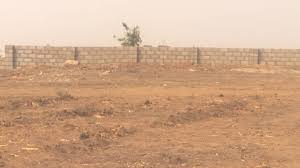
4. What Are the Red Flags in This Area?
Many buyers get carried away by low prices or sweet talk from agents. But if you dig deeper, you may discover that the land has hidden problems.
Ask your real estate agent about: History of land disputes in the community, Whether the land is under government acquisition, If the area is prone to flooding or erosion, or security challenges such as communal conflicts or high crime rates.
5. Can I See the Land Myself?
Never rely on videos, photos, or promises. A physical inspection is a must.
During the visit, confirm that:
- The land matches the survey plan.
- There are no encroachments or squatters.
- The boundaries are clearly marked.
A reputable real estate agent will encourage physical visits rather than discourage them.
6. Is the Land Suitable for My Purpose (Feasibility)?
Not every land is right for every project. Some plots look attractive on paper but are unsuitable in reality. For example, swampy land might be fine for fish farming but not ideal for residential homes unless you spend heavily on sand-filling.
Questions to ask your real estate agent include:
- Is the land prone to flooding?
- What’s the soil type, and is it good for construction?
Engage a surveyor or engineer for a feasibility study.
7. What Will My Budget Really Cover?
Many first-time buyers think the purchase price is the only cost. But in Nigeria, land buying often comes with hidden fees.
Ask your agent to break down all costs, such as:
Legal fees , Survey and registration fees, Development levies, and Cost of fencing.
Understanding these costs will save you from nasty surprises and prevent agents from inflating prices.
8. What Is the Actual Size of the Land?
In Nigeria, land sizes are usually measured in square meters (sqm) or plots. A standard plot is between 450 sqm and 600 sqm, depending on the state.
However, sizes can vary greatly.
Ask your agent:
- How many square meters is the plot?
- Is it a full plot or half-plot?
- Is the survey plan accurate?
9. What About Future Appreciation?
Land is not just about present value it’s an investment. In Nigeria, land in urban areas or rapidly developing regions appreciates faster.
Questions to ask your agent include:
- What major projects are planned in this area (roads, bridges, estates)?
- How has the value of land here grown in the last five years?
- What government policies could affect prices in the future?
Agents with market insight should be able to explain why the land will appreciate.
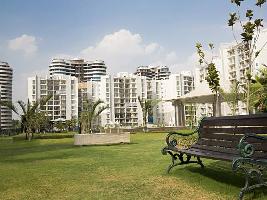
10. How Safe Is the Land (Security)?
Land disputes and security issues are real concerns in Nigeria. Buying land in a conflict-prone area could mean constant harassment from “Omonile” (land grabbers) or multiple claimants.
Ask your agent:
- Does the land have a clean ownership history?
- Are there any pending disputes in court?
- Is the area prone to theft or community violence?
11. What Questions Should You Ask When Buying a Piece of Land?
Here’s a quick checklist you can use when talking to your real estate agent:
- Who is the real owner of the land?
- What documents prove ownership?
- Is the land free from government acquisition?
- Can I inspect the land physically?
- Are there hidden fees I should know about?
- What are the risks and challenges of this location?
Asking these questions not only protects your money but also helps you work with only trusted real estate agents.
12. What Are the Things to Look Out for When Buying Land?
To recap, here’s what every smart buyer should look out for:
- Location – affects accessibility and appreciation.
- Title documents – prove legal ownership.
- Feasibility – ensures land fits your purpose.
- Budget clarity – covers all hidden costs.
- Security – ensures no disputes or risks.
Conclusion
Buying land in Nigeria is undoubtedly one of the smartest investments you can make, but it does not come without risks. Asking the right questions before buying land is the key to avoiding fraud, financial losses, and unnecessary stress.
Always keep in mind:
- Be patient, never rush into making payments.
- Work only with trusted professionals such as licensed surveyors and real estate lawyers.
- Verify all documents at the land registry before finalizing any transaction.
The truth is, the difference between a stress-free land purchase and a regretful experience often lies in the due diligence you carry out from the very beginning. This includes buying from registered real estate companies like M.I. Okoro and Associates and ensuring a lawyer is involved throughout the process.
Are you ready to inspect land or property before making your next investment? We have prime properties available in Lekki, Chevron, Ikoyi, and Ajah, including:
- 2 and 3-bedroom flats for sale,
- Semi-detached duplexes,
- A clubhouse with transformer,
- And plots of land in Chevron and other parts of Nigeria.
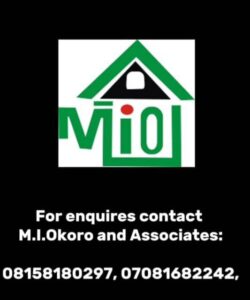
📞 To schedule an inspection or learn more, reach out to us today on 08158180297 or 07081682242.
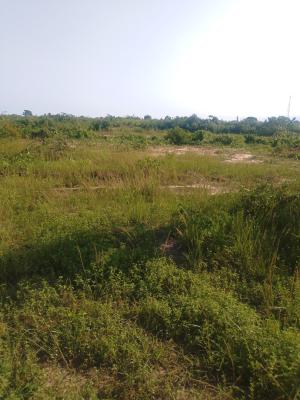
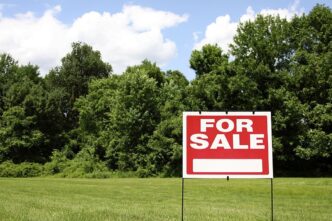
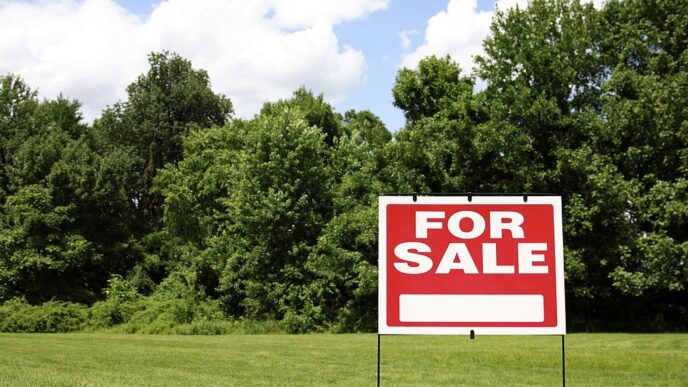
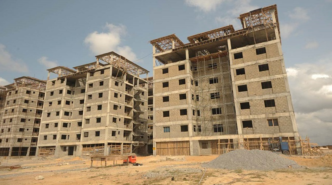
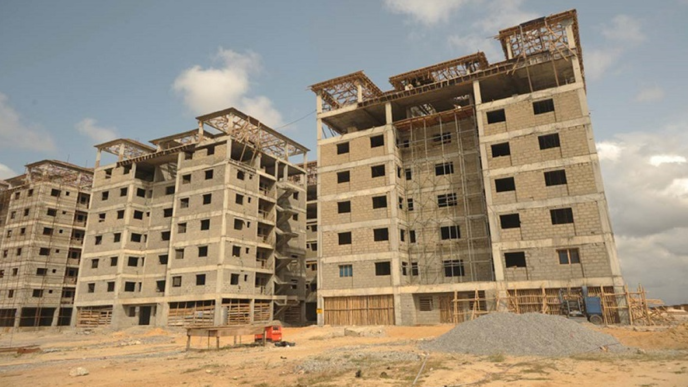
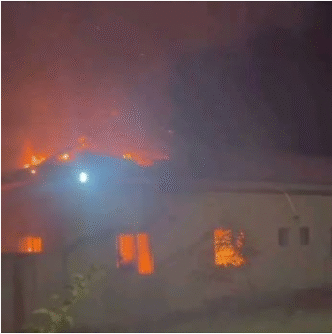
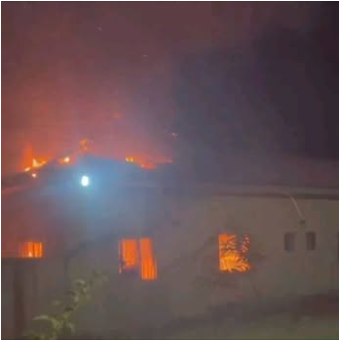
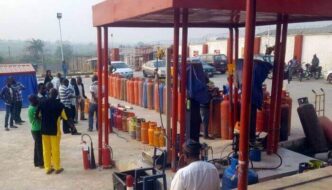
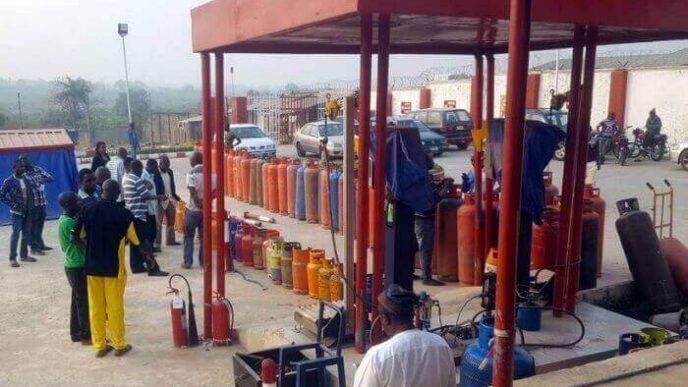
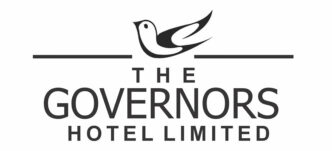
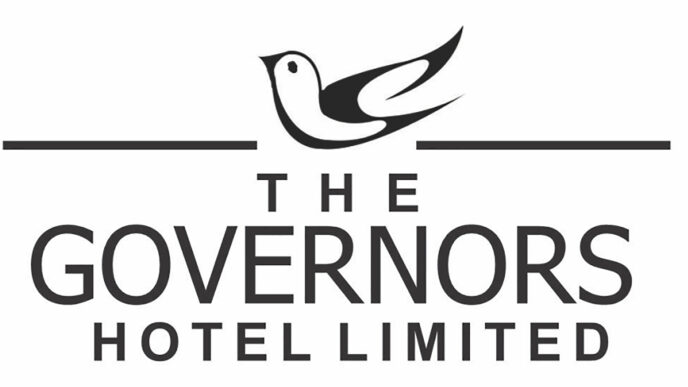


Noting these now